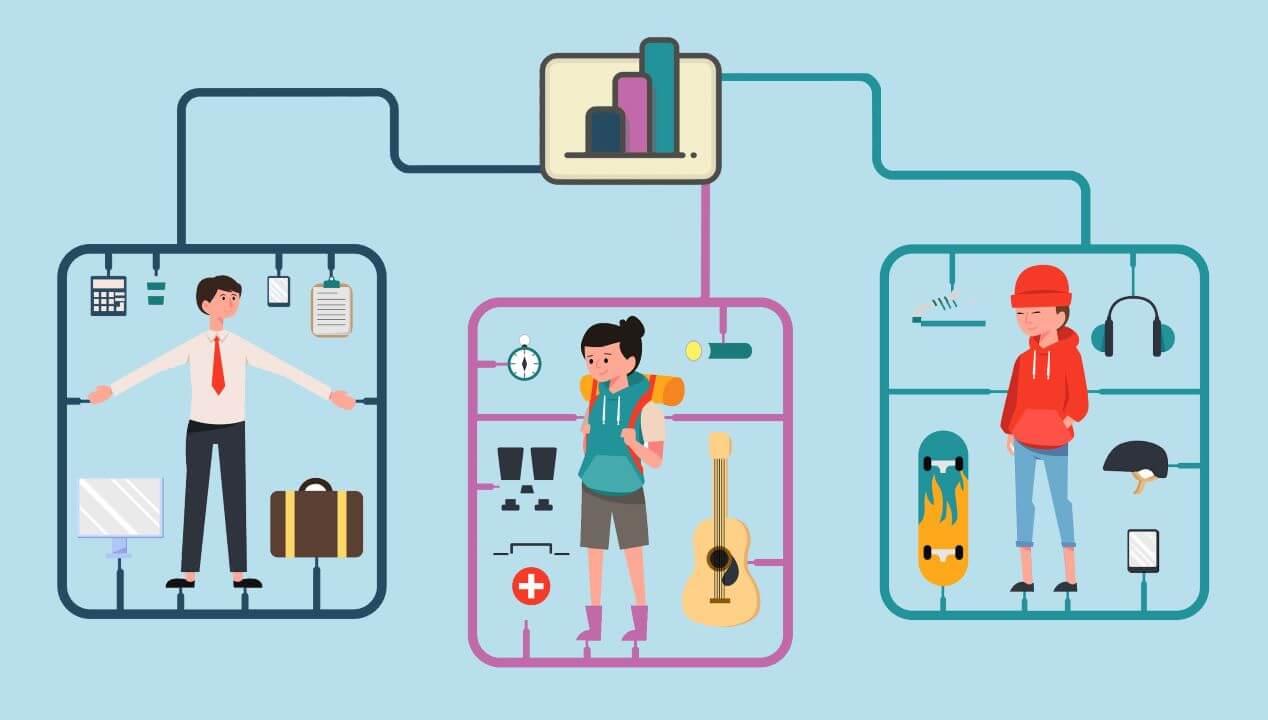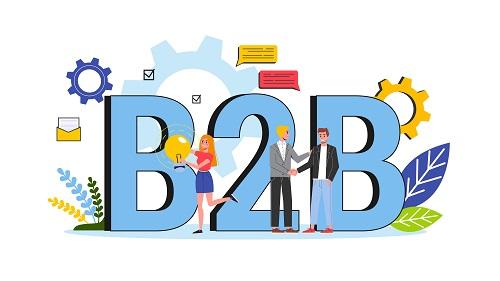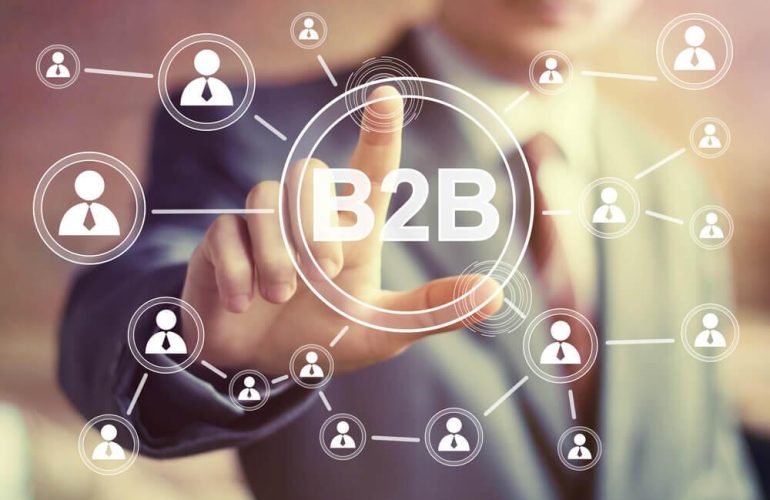In the ever-evolving landscape of B2B marketing, the importance of personalization has emerged as a pivotal element in enhancing lead generation strategies. As businesses strive to engage potential clients in a more meaningful way, the traditional one-size-fits-all approach is quickly becoming obsolete. Personalization not only streamlines the customer journey but also fosters genuine connections between brands and prospects. In this article, we will explore how integrating personalized tactics can elevate your lead generation efforts, driving higher engagement rates and ultimately leading to increased conversion opportunities. Join us as we delve into the key strategies, tools, and insights that can transform your approach to B2B lead generation through the power of personalization.
Table of Contents
- Understanding the Importance of Personalization in B2B Lead Generation
- Key Strategies for Implementing Personalization in B2B Marketing
- Leveraging Data Analytics to Drive Personalized Lead Generation
- Measuring the Impact of Personalization on Lead Conversion Rates
- Key Takeaways
Understanding the Importance of Personalization in B2B Lead Generation
In today’s competitive landscape, the significance of tailoring B2B lead generation efforts cannot be overstated. Personalization helps businesses create a deeper connection with potential clients by making them feel seen and valued. This approach enables companies to understand the unique needs, preferences, and pain points of their audience, allowing for more effective communication and engagement. By leveraging data analytics and insights, organizations can segment their leads and craft targeted messaging that resonates, ultimately increasing the chances of conversion. Key benefits of personalization in lead generation include:
- Improved Engagement: Personalized content captures attention, increasing interaction and response rates.
- Higher Conversion Rates: Tailored messages lead to better alignment with the prospects’ needs, driving more sales.
- Stronger Relationships: A personalized approach fosters trust, resulting in long-term partnership potential.
To effectively implement personalization strategies, organizations often utilize advanced tools and techniques. Technology plays a crucial role in gathering valuable insights about leads, enabling businesses to customize their outreach. For instance, marketing automation platforms and customer relationship management (CRM) systems can track and analyze user behavior, preferences, and interactions. Below is a simple overview of common methods used for personalization:
| Method | Description |
|---|---|
| Dynamic Content | Content that changes based on the user’s profile or behavior. |
| Targeted Campaigns | Campaigns designed specifically for segmented audiences. |
| Email Personalization | Customized email messages informed by recipient data. |
Key Strategies for Implementing Personalization in B2B Marketing
Implementing effective personalization strategies in B2B marketing requires a deep understanding of your target audience. Start by segmenting your audience into distinct groups based on characteristics such as industry, company size, and buyer behavior. This segmentation allows you to tailor your messaging, making it more relevant and engaging. Alongside segmentation, investing in customer relationship management (CRM) tools can help track interactions, preferences, and pain points, thereby enabling your marketing efforts to resonate on a personal level. Consider these tactics as part of your approach:
- Dynamic Content: Utilize templates that adjust based on user data.
- Email Personalization: Craft specific email campaigns tailored to individual segments.
- Behavioral Triggers: Send targeted communications based on user actions or inactions.
Another crucial aspect of personalization is leveraging data analytics to inform your strategies. By analyzing user behavior and engagement metrics, you can gain insights into what content resonates most with your audience. Implementing A/B testing lets you experiment with different personalized approaches, refining your tactics based on real-time feedback. Additionally, consider using marketing automation tools to streamline your efforts, ensuring your audience receives the right message at the right time. To illustrate the impact of personalization, you can refer to the following example:
| Personalization Technique | Impact on Engagement |
|---|---|
| Email Customization | Increased open rates by 29% |
| Targeted Ads | Higher conversion rates by 38% |
| Content Offers | Improved lead nurturing efficiency by 50% |
Leveraging Data Analytics to Drive Personalized Lead Generation
In today’s competitive landscape, leveraging data analytics has become essential for B2B companies aiming to enhance their lead generation strategies. By analyzing customer data, businesses can uncover valuable insights that reveal the preferences, behaviors, and pain points of their target audience. This information allows marketers to create highly personalized outreach strategies that resonate with individual prospects. Key benefits of utilizing data analytics for personalization include:
- Enhanced targeting: Data analytics enables businesses to identify and segment their audience effectively, allowing for tailored messaging that speaks directly to potential leads.
- Improved engagement: Personalization fosters a sense of relevance, which can significantly boost engagement rates and encourage prospects to interact with your brand.
- Higher conversion rates: When leads receive personalized content that addresses their specific needs, they are more likely to move further down the sales funnel.
Moreover, employing advanced analytical tools can help in crafting personalized experiences across various touchpoints. Organizations can analyze previous interactions, understand the content that performs well, and optimize their marketing strategies accordingly. This process might involve A/B testing different campaigns and utilizing machine learning algorithms to predict the best time to reach out to leads. Below is a simple representation of how these analytics can impact lead generation:
| Strategy | Impact of Personalization |
|---|---|
| Email Campaigns | Increased open and click-through rates by personalizing subject lines and content. |
| Landing Pages | Higher conversion rates by tailoring content to specific user segments. |
| Social Media Advertising | Greater engagement through targeted ads based on user data insights. |
Measuring the Impact of Personalization on Lead Conversion Rates
Understanding how personalization affects lead conversion rates is essential for refining B2B lead generation strategies. When potential clients encounter tailored content that speaks directly to their needs and pain points, the likelihood of engagement significantly increases. Personalized emails, targeted ads, and customized landing pages create a more engaging user experience, ultimately guiding prospects through the decision-making process. According to research, companies that leverage personalization effectively can see a lead conversion rate increase of up to 10% or more, illustrating the powerful impact of this approach.
To measure the specific effects of personalization on conversion rates, businesses should consider implementing a system to track key performance indicators (KPIs). A few important metrics to monitor include:
- Click-through rates (CTR): Measures how many leads engage with personalized content.
- Lead-to-customer conversion rate: Tracks the effectiveness of personalized outreach in turning leads into paying customers.
- Customer feedback and satisfaction scores: Assesses how personalization affects overall customer experience.
Creating a comparison table of conversion rates before and after implementing personalization strategies can provide visual confirmation of its benefits:
| Time Period | Conversion Rate (%) | Change (%) |
|---|---|---|
| Before Personalization | 4.5 | N/A |
| After Personalization | 15.2 | +10.7 |
Key Takeaways
As we conclude our exploration of how personalization enhances B2B lead generation strategies, it’s clear that the landscape of marketing is continually evolving. The integration of personalized approaches not only fosters stronger connections with potential clients but also streamlines the path to conversion. By leveraging data, understanding the unique needs of your target audience, and tailoring your messaging, businesses can cultivate more meaningful relationships that drive success.
Incorporating personalization into your lead generation efforts may require a shift in mindset and strategy, but the rewards can be significant. Enhanced engagement, improved conversion rates, and ultimately, increased revenue are just a few of the benefits to be gained. As the competition continues to intensify, those who prioritize personalized experiences will stand out in a crowded marketplace.
We encourage you to assess your current strategies and consider how you can weave personalization into your lead generation efforts. Whether through targeted content, individualized outreach, or leveraging advanced technology, every step towards personalization is a step toward a more successful B2B landscape. Remember, in an era where customers expect tailored experiences, personalization is not just an option; it’s a necessity for sustainable growth. Thank you for joining us on this insightful journey, and we look forward to seeing how you implement these strategies in your own business.






